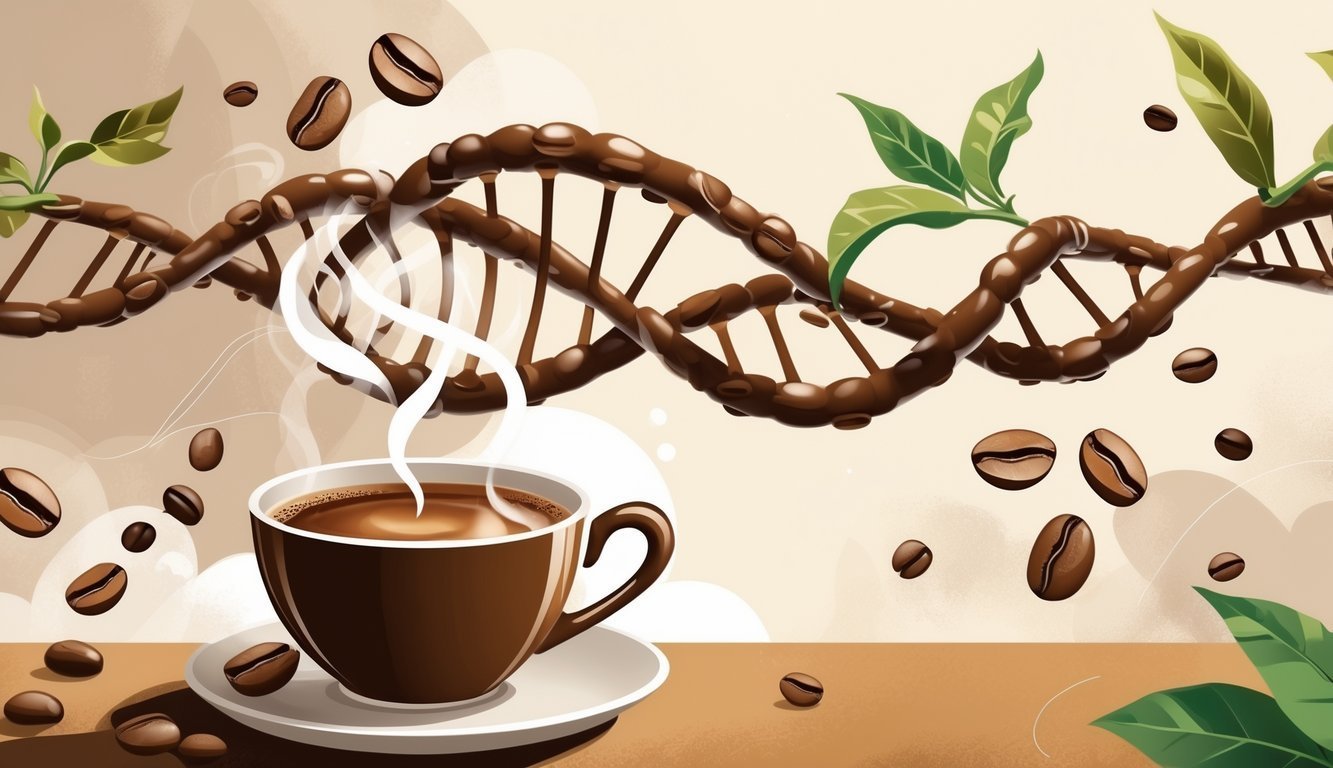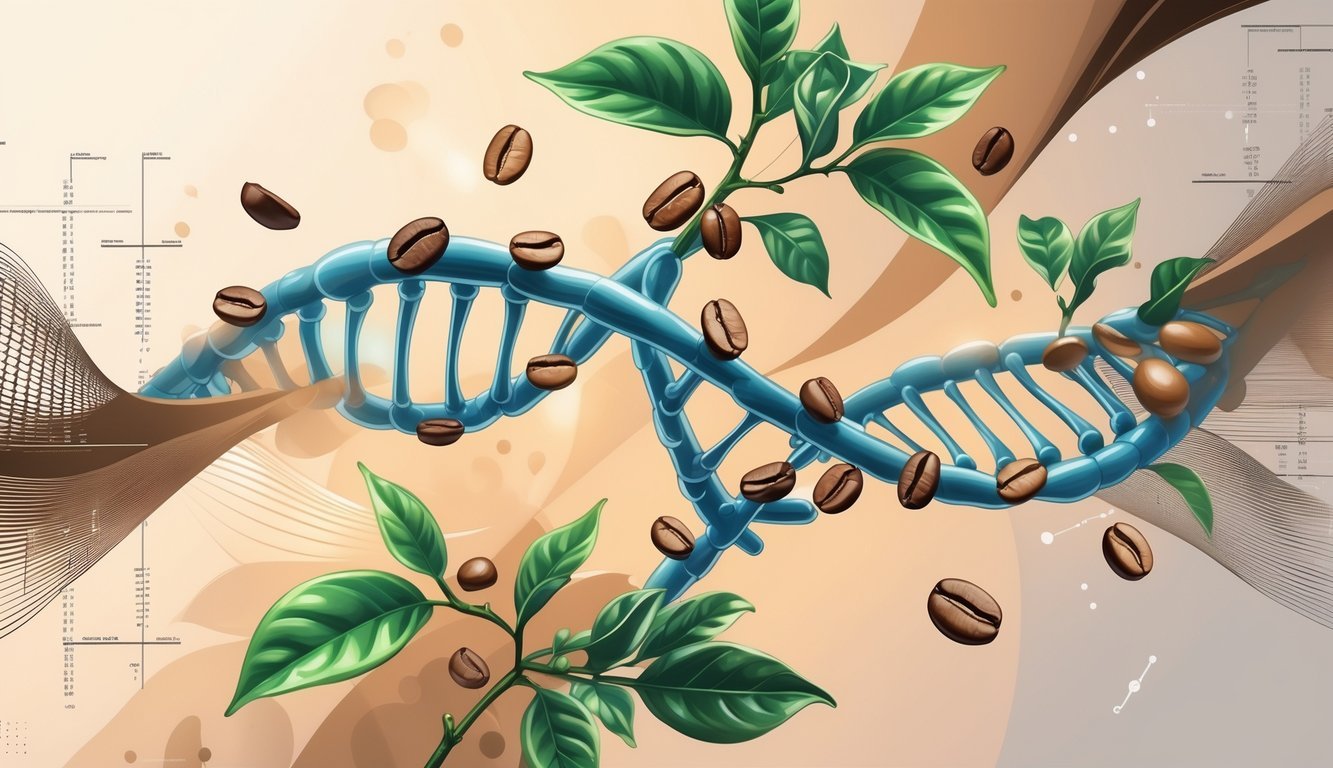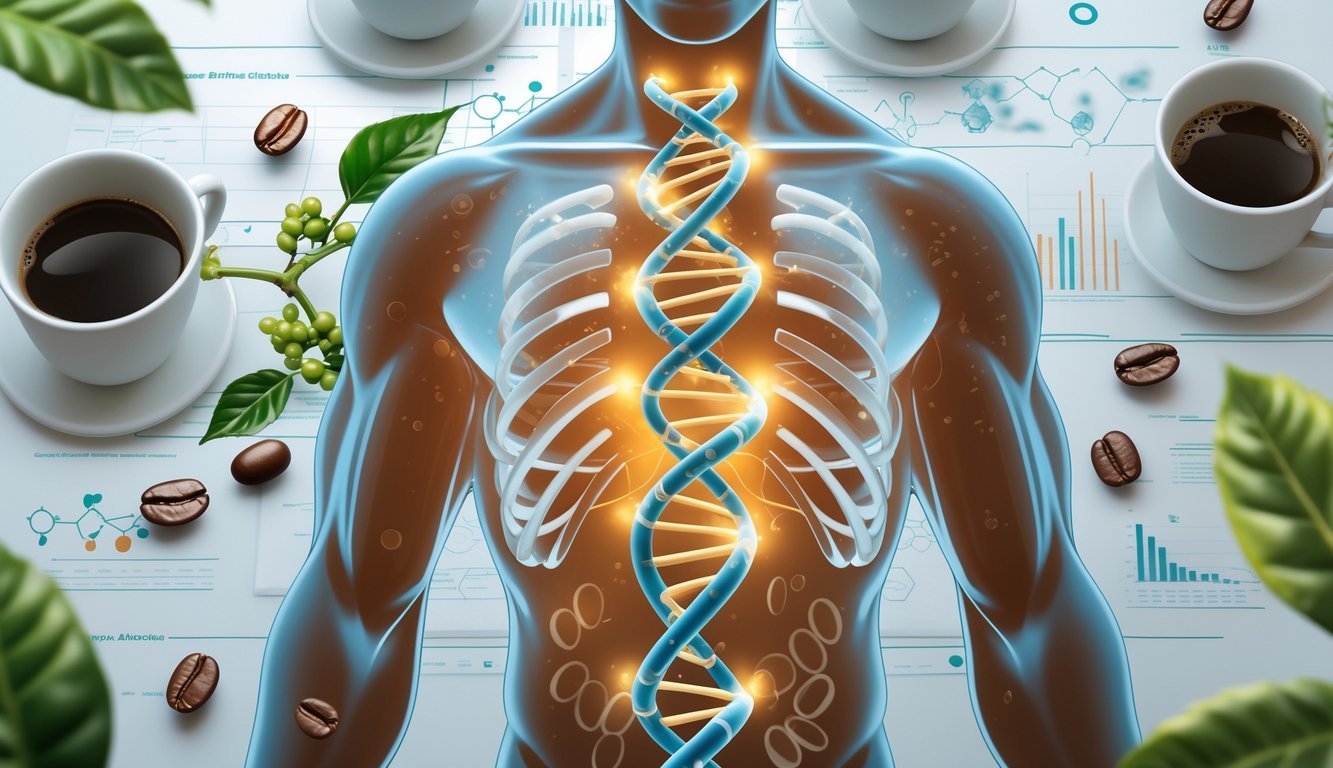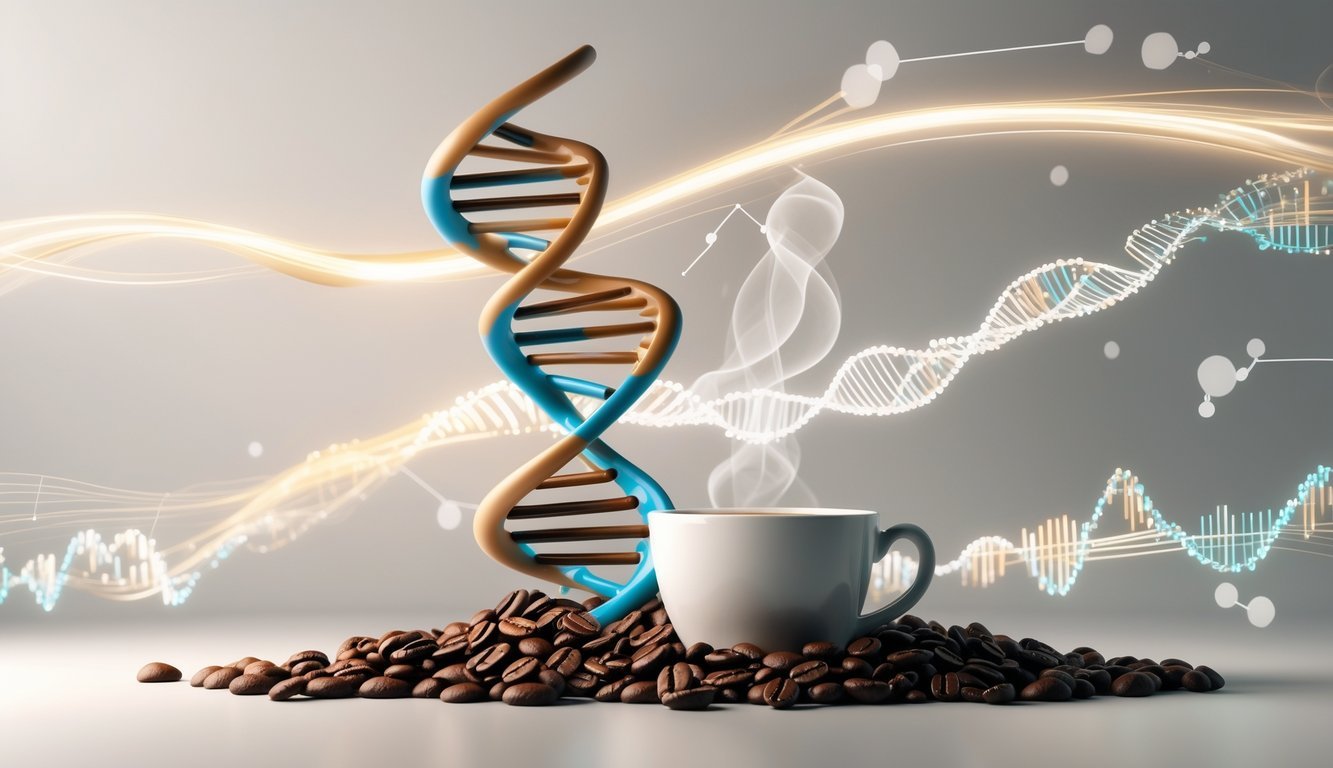PsychNewsDaily Publishers
100 Summit Drive
Burlington, MA, 01803
Telephone: (320) 349-2484
PsychNewsDaily Publishers
100 Summit Drive
Burlington, MA, 01803
Telephone: (320) 349-2484
Genetic makeup significantly influences caffeine metabolism, coffee consumption preferences, and sensitivity, impacting overall health, disease risk, and individual's coffee habits.

Ever wonder why some people need more coffee than others? Turns out, your genes have a lot to say about it. Your DNA can actually influence your coffee habits by affecting how your body handles caffeine and how much you enjoy drinking it.
Scientists have looked at tons of people’s DNA and found links between certain genes and coffee drinking. These genes decide how fast your body breaks down caffeine, which totally changes how you feel after a cup.
So, your coffee cravings and tolerance aren’t just about habit. They might be written right into your DNA.
Thinking about this might help you see your coffee routine in a new way. It also explains why your friends and family have such different reactions to the same cup.

Your DNA plays a big role in your coffee habits and how your body deals with caffeine. Genetic factors decide how fast you process caffeine and even shape your taste for different types of coffee.
Some genetic variants control how quickly your body breaks down caffeine. CYP1A2 is one of the main genes here.
If you have a version of this gene that works fast, you process caffeine quickly and can probably handle more coffee without getting jittery. But if your body breaks down caffeine slowly, you’ll feel the effects longer.
You might avoid too much coffee or stick to decaf. This is why some people are more sensitive to coffee, while others can drink cup after cup.
Big projects like 23andMe and the UK Biobank have used Genome-Wide Association Studies (GWAS) to find genetic factors tied to coffee drinking. They found dozens of genetic variants linked to how much coffee people drink.
These studies show connections between genes for caffeine metabolism and brain function, like how you respond to caffeine’s buzz. They also found coffee intake is linked to things like smoking or BMI.
So, your genetic profile touches a lot more than just your coffee cup.
Coffee drinking runs in families, and it’s not all about what you grew up with. Twin studies suggest about 30-50% of your coffee habits come from your genes.
Your family genes shape not just how much coffee you drink but also how your body reacts to it. That’s probably why you and your relatives might share similar coffee quirks.
Your DNA even has a say in the kind of coffee you like. Some genetic differences make you more sensitive to bitter flavors, so you might reach for sweeter or flavored drinks.
Other genes can nudge you toward instant coffee, ground coffee, or decaf. Your unique “coffee phenotype” means your genes play a part in whether you love strong, mild, caffeinated, or decaf coffee.
No wonder there’s so much variety in people’s coffee preferences.

Your genes don’t just affect how much coffee you drink—they also change how caffeine hits you. This can impact your risk for certain diseases, your mental health, and your overall nutrition.
Your genetic makeup can change how coffee affects your health. Some people break down caffeine faster, which might help protect them from heart problems linked to coffee.
Research links coffee to a lower risk of type 2 diabetes and some cancers. But this depends on your genes and how much coffee you drink.
Too much coffee could raise risks if your body reacts strongly to caffeine. In general, moderate coffee drinking is tied to health perks like lower odds of obesity and some cancers.
Still, your best amount depends on your genes.
Genes also decide how caffeine affects your brain and mood. If you’re sensitive to caffeine, coffee could make you anxious or worsen depression.
Some folks have a higher risk of psychiatric issues thanks to caffeine’s buzz. This can mess with sleep and leave you feeling restless or nervous.
Knowing your caffeine sensitivity can help you figure out how much coffee is right for you. Cutting back might even help your mood if coffee makes you jittery or anxious.
Coffee brings antioxidants and nutrients, which can be good for you. But your genes decide how coffee fits into your nutrition.
If coffee changes your metabolism, it could affect your weight or blood sugar. That matters for preventing obesity and diabetes.
Public health advice usually suggests moderate coffee for people with certain genetic risks. It’s all about balancing the good stuff with possible downsides.
Key points to keep in mind:

Here are some details about how coffee links to your genes, heart health, metabolism, and even DNA repair. We’ll also answer questions about safe coffee amounts and the genes behind your coffee habits.
Recent research suggests moderate coffee drinking doesn’t raise heart risks for most people. Some studies even link regular coffee to a lower risk of certain heart problems.
But everyone’s different, especially if you have specific heart issues.
Moderate coffee intake usually means about 3 to 4 cups a day. Most adults can drink this much safely and get the benefits without side effects like jitters or sleep trouble.
Coffee itself doesn’t change your DNA directly. But some studies say it might affect how certain genes work, especially those tied to metabolism and caffeine processing.
Yes, some genes affect how much you like coffee and how sensitive you are to caffeine. Genes that control caffeine breakdown can change how much coffee you want.
Moderate caffeine intake links to a lower risk of type 2 diabetes and some metabolic diseases. Caffeine changes how your body uses sugar and fat.
But if you drink way too much, it could cause issues for some people.
Some studies hint that caffeine could actually help the body’s DNA repair itself, shielding cells from damage. Still, scientists aren’t totally sure yet, and honestly, we need more research to figure out exactly how this works for different people.